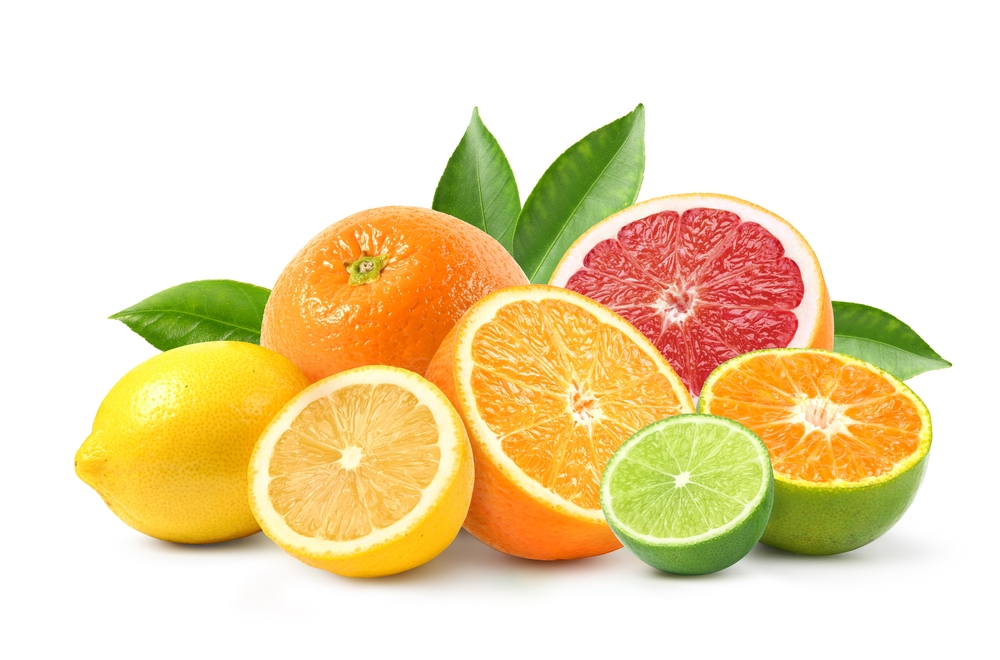FUE hair transplant experts at Harley Street Hair Transplant Clinics have created a list of the best foods to help combat hair loss and encourage growth.
Vitamin C, A, D, and E-rich foods
Incorporating a combination of foods rich in these vitamins in your diet will optimise hair health and growth.
Both Vitamin C and Vitamin A play vital roles in reducing inflammation in the scalp. Vitamin C helps prevent conditions like dandruff, while Vitamin A helps regulate sebum production, preventing conditions such as a dry or oily scalp.

These issues, if left unchecked, could obstruct the hair follicles and hinder hair growth.
Similarly, Vitamin D and Vitamin E work together to promote hair growth. Vitamin D stimulates the creation of new hair follicles, while Vitamin E enhances blood circulation to these follicles, ensuring that they receive the essential nutrients needed for growth.
Vitamin C can be found in citrus fruits, broccoli, Brussels sprouts, and tomatoes, and Vitamin A is in carrots, butternut squash, liver, and mangoes.
Fortified foods such as milk and orange juice, as well as cheese, are good sources of Vitamin D, and olive oil, sunflower oil, and peanut butter are all rich in Vitamin E.
Protein-rich foods
Since hair is mainly made up of keratin, a type of protein, if you aren’t eating enough protein, the body can’t produce adequate keratin levels to promote strong hair.
Eggs, lean meats such as chicken and turkey, fish such as salmon and tuna, and dairy products like yoghurt and cheese are great sources of protein for hair health.
If you are vegetarian or vegan, alternative options to incorporate protein into your diet include beans, lentils, chickpeas, tofu, and seeds such as chia and sunflower.
Consuming these foods will boost hair strength and elasticity, reducing breakage and helping your hair grow longer.
Omega-3 fatty acid-rich foods
It’s important that you obtain Omega-3 fatty acids through your diet, as the body is unable to produce these essential fats on its own.
They help reduce scalp inflammation, which can lead to hair loss, as well as nourishing and improving blood flow to hair follicles, strengthening hair and making it shinier.
Fatty fish, such as salmon, mackerel, sardines, and tuna contain Omega-3. You can also opt for fish oil supplements, for example, EPA and DHA.
There are also plant-based options, like sprinkling flaxseeds and walnuts on salads or adding chia and hemp seeds into smoothies.
Iron-rich foods
Iron deficiency can lead to hair thinning as iron plays a crucial role in oxygen being transferred to hair follicles.
Heme iron found in animal-based sources, such as red meat, poultry, and seafood, is more easily absorbed by the body.
Non-heme iron, which is obtained from plant-based sources, such as soy-based proteins, legumes, and leafy greens, needs to be paired with vitamin C for better absorption.
To do so, you should also add fruits such as oranges and strawberries to your diet.
Zinc-rich foods
Red meat, poultry, seafood, legumes, nuts, seeds, whole grains, and fortified foods are all rich in zinc.
The nutrient supports tissue repair, which helps regulate scalp oil production and prevent hair follicle shrinkage.
Similarly to iron, zinc is less absorbable from plant-based sources, as phytates found in legumes, nuts, seeds, and whole grains bind zinc to the digestive tract, making it more difficult for the body to absorb.
To help improve absorption, opt for foods lower in phytates, such as fermented foods like tempeh or soaked legumes, nuts, and seeds to reduce the phytate content.
Biotin-rich foods
B7, also known as biotin, promotes healthy hair growth, as it enhances the keratin structure.
You can obtain this vitamin through foods such as eggs, particularly the yolks, organ meats such as liver or kidney, and dairy products, with full-fat versions having higher levels of biotin.
Vegetables such as sweet potatoes, mushrooms, and spinach are also good sources of B7. All three of these ingredients can be included in stir-fry, casserole, and frittata recipes.
Foods to avoid
On the other hand, processed foods such as fast food takeaways and sugary foods like sodas and sweets can contribute to conditions that impair healthy hair growth.
These foods are typically high in trans fats, refined sugars, and artificial additives, which can trigger both systemic and localised inflammation.
Systemic inflammation refers to chronic inflammation throughout the body, which can disrupt processes like nutrient delivery and hormonal balance, affecting overall health and the function of hair follicles.
Excessive consumption of processed foods can also promote localised inflammation of the scalp, leading to weakened or inflamed hair follicles.
This inflammation may cause hair follicles to shrink or enter a resting phase – where the hair follicles become dormant and no new hair growth occurs – prematurely, resulting in hair thinning or loss.
Additionally, high sugar intake can cause increased insulin production, leading to insulin resistance, which in turn raises androgen levels – a hormone that shrinks hair follicles.
It can also damage blood vessels, reducing blood flow and limiting the delivery of oxygen and nutrients to hair follicles.
These various problems, combined with the fact that processed and sugary foods are low in essential nutrients, mean excessive consumption can negatively impact hair health.
Instead, they should be enjoyed in moderation and as a treat alongside a healthy diet to limit potential issues.